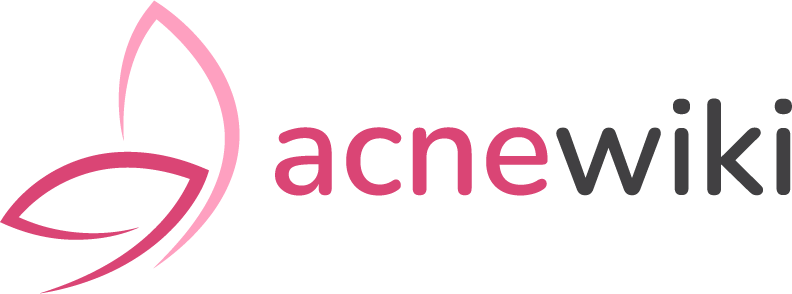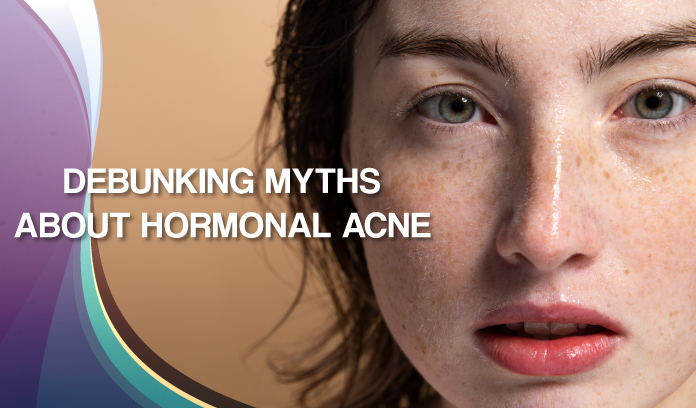Hormonal acne is a common issue that affects many people, yet it is often surrounded by myths and misconceptions. Understanding the facts about hormonal acne is essential for effective treatment and management. This blog aims to debunk common myths and provide clear, factual information about hormonal acne.
Hormonal Acne Only Affects Teenagers
Hormonal acne is commonly associated with teenagers due to puberty-related hormone fluctuations. However, it can affect individuals of all ages, including adults. Factors such as menstrual cycles, pregnancy, menopause, and stress can cause hormonal changes that lead to acne in adults. Understanding that hormonal acne is not limited to adolescence helps in seeking appropriate treatment for individuals at any stage of life.
Poor Hygiene Causes Hormonal Acne
Many believe that hormonal acne is a result of poor hygiene. While good skin care practices are important, hormonal acne is primarily driven by internal factors such as hormone imbalances, rather than external dirt or bacteria. Overwashing can irritate the skin and exacerbate acne. Effective management involves addressing hormonal imbalances and using appropriate skincare products rather than just focusing on cleanliness.
Only Women Get Hormonal Acne
Hormonal acne is often thought to affect only women due to their menstrual cycles and hormonal fluctuations. However, men can also experience hormonal acne, particularly due to androgens like testosterone, which can increase sebum production and clog pores. Recognizing that hormonal acne affects both genders is crucial for proper diagnosis and treatment.
Hormonal Acne Is Caused by Eating Chocolate
The belief that eating chocolate causes hormonal acne is widespread. However, no definitive scientific evidence links chocolate consumption directly to acne. Hormonal acne is more influenced by hormonal fluctuations and genetic predisposition. While a balanced diet is important for overall skin health, chocolate alone is not a direct cause of hormonal acne.
Sun Exposure Clears Hormonal Acne
Some people believe that sun exposure can clear hormonal acne by drying out the skin. While sun exposure may temporarily reduce the appearance of acne, it can lead to long-term skin damage, increased oil production, and post-inflammatory hyperpigmentation. Sun protection and appropriate acne treatments are essential for managing hormonal acne without causing further skin issues.
Hormonal Acne Can Be Cured Overnight
There is no quick fix or overnight cure for hormonal acne. It often requires a combination of treatments, including topical medications, oral medications, and lifestyle changes, over an extended period to manage effectively. Patience and consistency are key in treating hormonal acne, as it often takes weeks or months to see significant improvements.
Makeup Causes Hormonal Acne
While some makeup products can clog pores and exacerbate acne, hormonal acne is primarily caused by internal hormonal fluctuations. Using non-comedogenic, acne-friendly makeup products can help prevent pore clogging without causing hormonal acne. Proper makeup removal and a good skincare routine are also important to minimize the risk of acne flare-ups.
Acne Is Only a Cosmetic Issue
Hormonal acne is often viewed solely as a cosmetic issue, but it can significantly impact an individual’s self-esteem, mental health, and quality of life. Addressing hormonal acne involves not only treating the physical symptoms but also providing support for the emotional and psychological aspects associated with the condition.
Drinking More Water Clears Hormonal Acne
While staying hydrated is important for overall skin health, drinking large amounts of water alone will not clear hormonal acne. Hormonal acne is influenced by internal hormonal imbalances, and effective treatment requires a comprehensive approach that includes medical interventions, skincare, and lifestyle changes beyond just hydration.
Toothpaste Can Cure Hormonal Acne
Applying toothpaste to pimples is a common myth believed to cure acne. Toothpaste can irritate the skin and worsen acne due to its ingredients, which are not formulated for treating acne. Effective treatment of hormonal acne involves using products specifically designed for acne, such as topical retinoids, benzoyl peroxide, or hormonal therapies prescribed by a dermatologist.
Conclusion
Debunking myths about hormonal acne is crucial for understanding and managing this common skin condition. By separating fact from fiction, you can take effective steps toward clearer, healthier skin.











